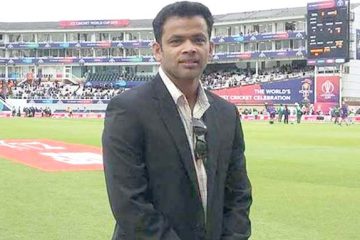Bangladesh Cricket Board president Nazmul Hasan on Monday accused Test captain Mushfiqur Rahim of damaging country’s image with his comments in South Africa but refused to confirm his removal from this position. Mushfiq came under fire from many corners after he opted to field first in the both the Test matches against South Africa in pitches that later appeared to be conducive for batting.
Bangladesh lost the first Test by 333 runs and second Test by an innings and 254 runs – their first innings defeat in nearly four years, which also ensured their third defeat by a clean sweep margin in South Africa.
Mushfiq uncharacteristically stepped in for the press conference after the opening’s day of the second Test to defend his decision and held team-management responsible for not allowing to field in his preferred position.
‘It is a matter of the country’s image when he [Mushfiq] makes these comments on tour,’ Nazmul told reporters in Dhaka. ‘The board is concerned with his comments because it is not consistent with the information we have. So it is important to find out from him what’s happening.
‘We have to investigate the issue, but only after the series. We will sort out what’s bothering him. If there’s no way out and if we see that leaving the captaincy will be good for Mushfiq, then we will decide accordingly.’
Nazmul said the team management – also comprising the coaching staff and manager – was there to provide the captain with specific plans and strategies, and he wanted to find out if Mushfiq was having problems with anyone.
‘I don’t think it is the captaincy but something else is bothering him. It could be the management, coach or even us. If we can figure it out, we will solve the problem,’ said Nazmul. ‘But let me ask you something: is it the management’s decision to field first in the second Test? Let us find out.
‘There’s nothing to hide in this case of who took the decision. Management gives a plan. If they don’t give a plan, what’s the use of having the coaching staff?’
Nazmul terms Mushfiq as an introvert and an emotionally vulnerable person who is ‘different’ to others.
‘He doesn’t express himself much. The quiet types are hard to understand. And they end up saying unexpected things,’ said Nazmul.
‘For example, there isn’t a captain in the world who’d say it was wrong of me to win the toss. But he has said it. Is this a way to answer a question? It shows that he’s having some problem, but I knew it from before.
‘He wants to perform all the time. If he doesn’t do well, he becomes disheartened in the field. His team-mates have to encourage him, and not the other way around. He becomes demoralised, goes into his shell. But he is one of our best batsmen. He has given a lot for the country.’
-With New Age input




















